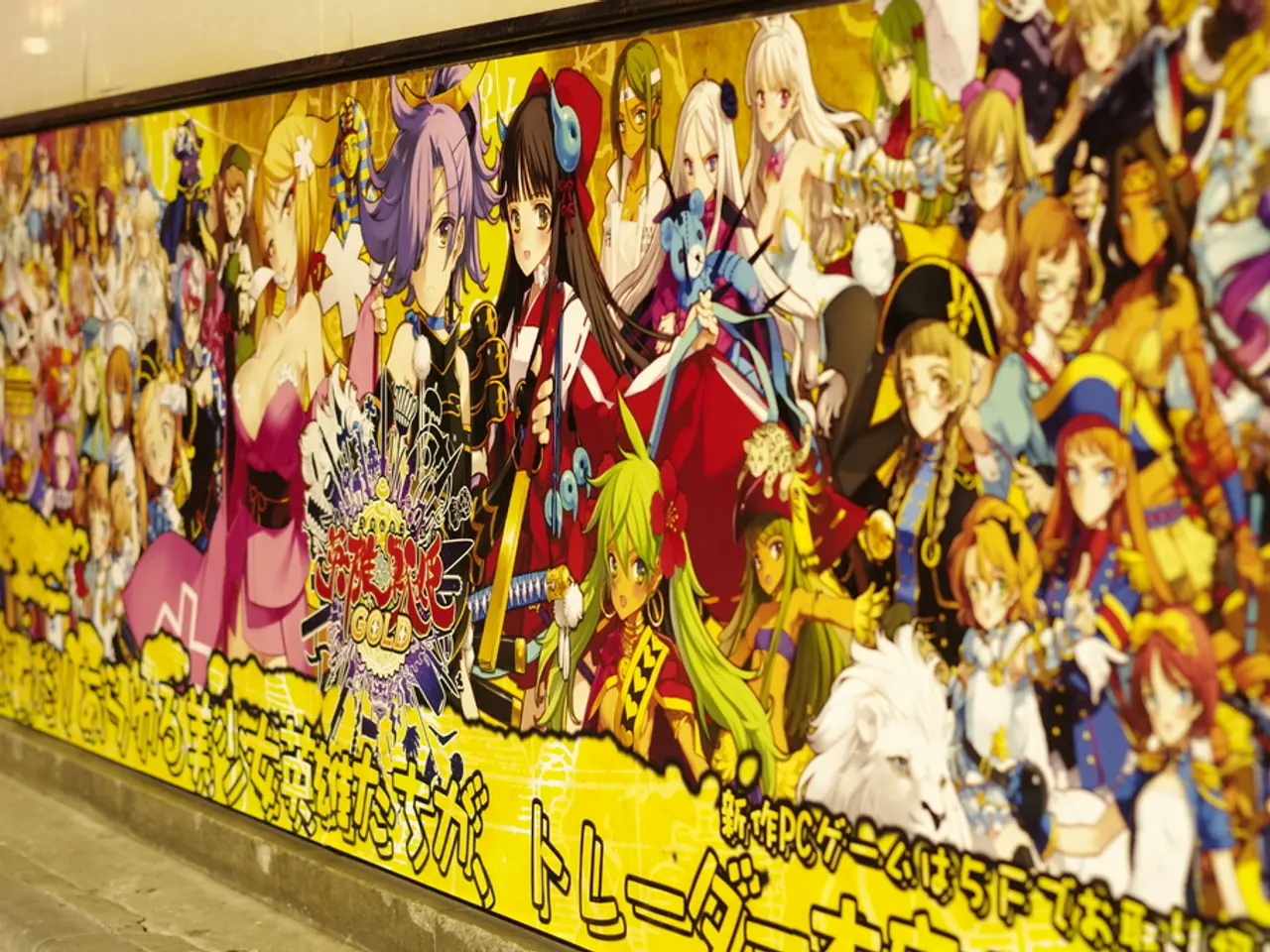Disney's AI advancements encountering hurdles presents a glimmer of opportunity for artists
Disney, a pioneer in the movie industry, has been experimenting with artificial intelligence (AI) in film production, aiming to revolutionise the way movies are made. However, the journey has not been smooth, with significant legal and ethical hurdles that have shaped Disney's cautious approach to future AI use.
One of Disney's ambitious projects was the creation of an AI "digital double" of Dwayne "The Rock" Johnson for the live-action Moana. Another was an AI-powered sidekick for Tron: Ares. Yet, these projects faced legal ambiguities around intellectual property (IP) ownership of AI-generated content and strong opposition from actors and writers' unions, leading Disney to scrap or shelve these projects [1][2][3].
The intellectual property and ownership issues are a major concern. Disney's lawyers expressed uncertainty about owning IP from AI-generated visuals, contributing to abandoning AI-cloned digital doubles despite actor approval and invested development time. This reflects a broader industry-wide murkiness over AI content rights [2][3].
Union and labor concerns also played a significant role in stalling AI integration efforts. Contract negotiations with actor and writer unions were halted for projects like the AI sidekick in Tron: Ares due to fears about job displacement and loss of creative control [1][3][4].
To navigate these challenges, Disney has created an internal AI review committee and pursues a conservative strategy that balances innovation with protecting its classic characters, storytelling integrity, and labor interests. The company continues to fight AI companies legally when its copyrighted characters are used without permission [3].
Technical and reputational risks also slow AI adoption. Technical difficulties, potential AI misuse, and the risk of adverse public reaction are factors that Disney considers before embracing AI [1][4].
Despite these setbacks, Disney is not entirely abandoning AI. Instead, it is exploring AI in smaller, more controllable applications such as personalised Disney+ content and interactive gaming, rather than replacing human creative roles [1][3].
The legal struggles Disney has faced highlight that while AI has transformative potential in movie production, the uncertainty around IP rights, ethical labor considerations, and union pressures will likely drive studios to adopt AI conservatively, emphasising human creative control and legal clarity before broader deployment [1][2][3][4][5]. This pattern suggests the film industry will evolve towards hybrid models combining AI-generated tools with traditional filmmaking, safeguarded by strong legal and ethical frameworks.
To avoid copyright infringement, any in-house AI model would have to be custom trained from the ground up only on the company's own IP. Disney's lawsuit against Midjourney, a company accused of training generative AI on copyrighted material, raises questions about the company's own practices in using AI, given its past complaints about copyright infringements [6][7].
In conclusion, Disney's journey with AI in movie production serves as a cautionary tale for the industry. While the potential benefits are undeniable, the challenges are significant and require careful navigation to ensure a harmonious blend of AI and human creativity.
- Disney's 'digital double' of Dwayne "The Rock" Johnson for the live-action Moana and the AI-powered sidekick for Tron: Ares were part of Disney's ambitious AI projects in film production.
- The creation of AI 'digital doubles' faced legal ambiguities around intellectual property (IP) ownership of AI-generated content and opposition from actors and writers' unions.
- Disney's lawyers have expressed uncertainty about owning IP from AI-generated visuals, contributing to abandoning AI-cloned digital doubles despite actor approval and invested development time.
- Contract negotiations with actor and writer unions were halted for projects like the AI sidekick in Tron: Ares due to fears about job displacement and loss of creative control.
- Disney's approach to future AI use has been shaped by significant legal and ethical hurdles, reflecting a broader industry-wide murkiness over AI content rights.
- Disney has created an internal AI review committee and pursues a conservative strategy that balances innovation with protecting its classic characters, storytelling integrity, and labor interests.
- Disney is exploring AI in smaller, more controllable applications such as personalised Disney+ content and interactive gaming, rather than replacing human creative roles.
- Disney's lawsuit against Midjourney, a company accused of training generative AI on copyrighted material, raises questions about the company's own practices in using AI, given its past complaints about copyright infringements.
- The film industry is likely to evolve towards hybrid models combining AI-generated tools with traditional filmmaking, safeguarded by strong legal and ethical frameworks to avoid copyright infringement.




